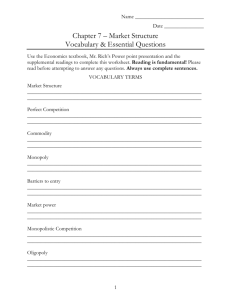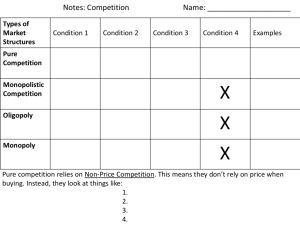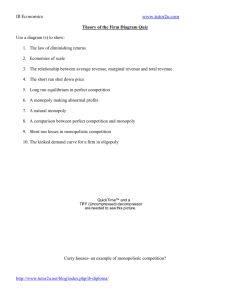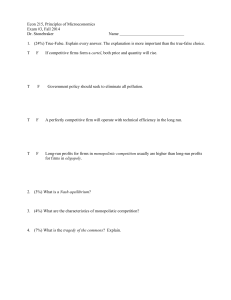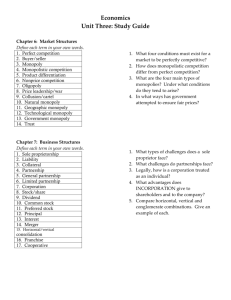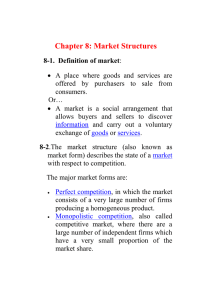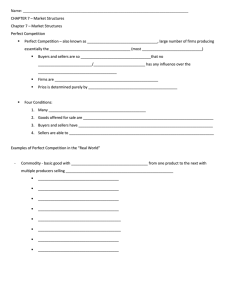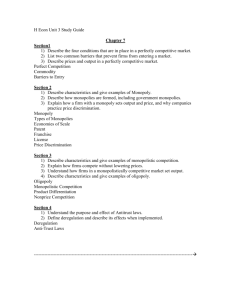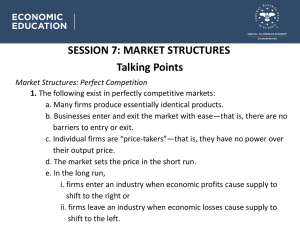Market Structures: Competition & Government Role
advertisement
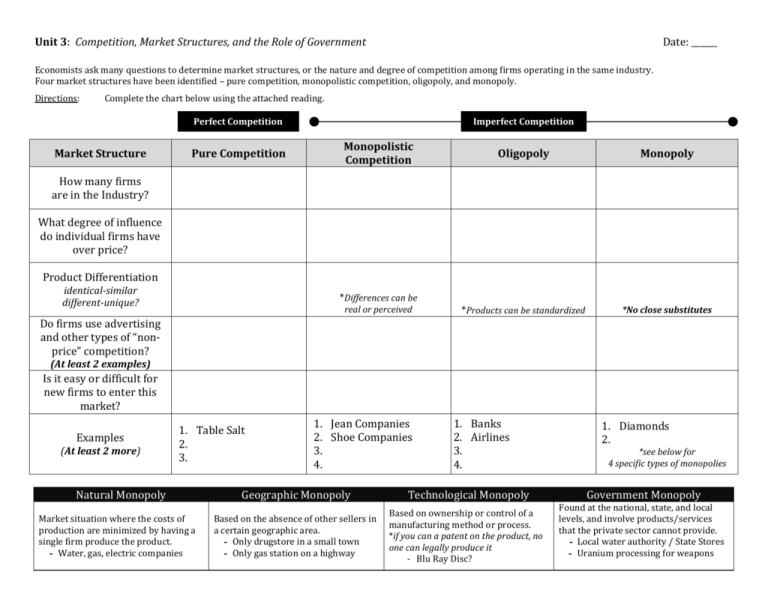
Unit 3: Competition, Market Structures, and the Role of Government Date: ______ Economists ask many questions to determine market structures, or the nature and degree of competition among firms operating in the same industry. Four market structures have been identified – pure competition, monopolistic competition, oligopoly, and monopoly. Directions: Complete the chart below using the attached reading. Perfect Competition Market Structure Pure Competition Imperfect Competition Monopolistic Competition Oligopoly Monopoly *Products can be standardized *No close substitutes How many firms are in the Industry? What degree of influence do individual firms have over price? Product Differentiation identical-similar different-unique? *Differences can be real or perceived Do firms use advertising and other types of “nonprice” competition? (At least 2 examples) Is it easy or difficult for new firms to enter this market? Examples (At least 2 more) 1. Table Salt 2. 3. Natural Monopoly Market situation where the costs of production are minimized by having a single firm produce the product. - Water, gas, electric companies 1. Jean Companies 2. Shoe Companies 3. 4. Geographic Monopoly Based on the absence of other sellers in a certain geographic area. - Only drugstore in a small town - Only gas station on a highway 1. Banks 2. Airlines 3. 4. Technological Monopoly Based on ownership or control of a manufacturing method or process. *if you can a patent on the product, no one can legally produce it - Blu Ray Disc? 1. Diamonds 2. *see below for 4 specific types of monopolies Government Monopoly Found at the national, state, and local levels, and involve products/services that the private sector cannot provide. - Local water authority / State Stores - Uranium processing for weapons
